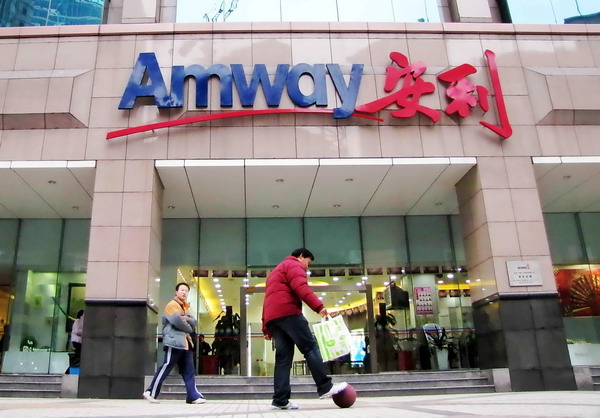After an all out ban on direct-selling in 1998, the Chinese government began allowing the marketing practice under new regulations in 2005. Since then, American direct-selling giant Amway has made serious inroads in China—last year nearly 40 percent of global revenue for Amway’s parent company came from China. China Daily reports:
[…]Amway went into China in 1995. “When you look at the number of people in China, it made sense for us to move in there,” [company chairman] Van Andel said. “We did and it grew and grew quickly. It has grown to our number one market in those years, so we’re very happy in that regard.”
[…]”It only makes sense that it fits into China,” he said. “If you look at history, they’re the merchants throughout Asia and throughout the world. I think that’s the reason that we’ve grown so quickly.”
Different products do better in some markets than in others. Amway’s largest product in China is protein powder, which is relatively small in the US, attracting mostly the body-building crowd. “In China they look at protein powder as a source of protein for kids,” Van Andel said, “because it’s not as easy to get protein for kids in China.”
Amway has an extensive training program in China. Learning how to sell, run a business, and present oneself to potential customers are essential to the direct-sell business model’s success. Amway has just launched a video-game-based tool for younger recruits. “In the process of playing the game they’re learning how to better operate their business,” Van Andel said. [Source]
To see such progress, Amway has needed to adapt its China operations to fit unique regulations and appease government anxieties about the business model. Under the 1998 direct-selling ban, Amway was operating successfully in China from brick-and-mortar locations, and was one of the first companies to be granted a direct-selling license under the new regulations. An in-depth report on Amway in China from Bloomberg notes that in the interim, Amway initiated an ongoing program with Harvard University’s Kennedy School of Government, a move that granted the company a significant reserve of high-level guanxi:
Amway won back its place in China by changing its business model and opening stores for the first time. It also improved its reputation by teaming up with America’s most prestigious school: Harvard University.
In a program bankrolled by Amway at a cost of about $1 million a year, Harvard’s John F. Kennedy School of Government has been training Communist apparatchiks known as Amway Fellows. Since it started in 2002, the program has brought more than 500 Chinese officials to Cambridge, Massachusetts, to study public management for a few weeks. Every group also visits Amway’s headquarters in Ada, Michigan, near Grand Rapids.
In a country where nothing is more valuable than guanxi, the term for the connections considered crucial to doing business, Amway has supersized its network thanks to the Harvard program. Though there are no public lists of participants, Bloomberg Markets identified 50 alumni through references in resumes in official publications and on websites.
[…]Also on the list [of Amway Fellows] are two officials who became heads of provincial branches of what’s now the China Food and Drug Administration, which approves the sale of nutritional products and cosmetics, Amway staples. Another alumnus is a former official in the government agency that polices direct selling.[…] [Source]
For the entire Bloomberg report and accompanying video piece, click through. Also see prior CDT coverage of direct sales.








